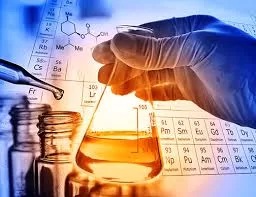New research suggests that middle-aged women exposed to toxic metals may experience a reduction in ovarian reserve, potentially leading to health issues during the menopausal transition. Diminished ovarian reserve refers to having fewer eggs compared to peers, and the study, published in The Journal of Clinical Endocrinology & Metabolism, highlights the association between heavy metal exposure and lower levels of Anti-Mullerian hormone (AMH) in middle-aged women.
Led by Sung Kyun Park, Associate Professor of Epidemiology and Environmental Health Sciences at the University of Michigan, the research focused on 549 women transitioning to menopause who exhibited evidence of heavy metal exposure, including arsenic, cadmium, mercury, or lead in their urine samples. The study aimed to understand the impact of widespread heavy metal exposure on health problems associated with premature aging of the ovaries, such as hot flashes, bone weakening, osteoporosis, higher chances of heart disease, and cognitive decline.
The team analyzed AMH blood test data from up to 10 years before the women’s final menstrual periods, revealing a correlation between higher levels of metal in urine and lower AMH levels. AMH serves as a biological clock for the ovaries, offering insights into the remaining egg supply. The study emphasizes the potential endocrine-disrupting characteristics of metals like arsenic and cadmium, emphasizing the need for further research on the impact of chemicals on diminished ovarian reserve and infertility.
“Widespread exposure to toxins in heavy metals may have a big impact on health problems linked to earlier ageing of the ovaries in middle-aged women,” said Sung Kyun Park, emphasizing the importance of studying the younger population to comprehensively understand the role of chemicals in ovarian health. The findings underscore the potential health risks associated with environmental exposures and the need for continued exploration of their impact on reproductive health in women.











